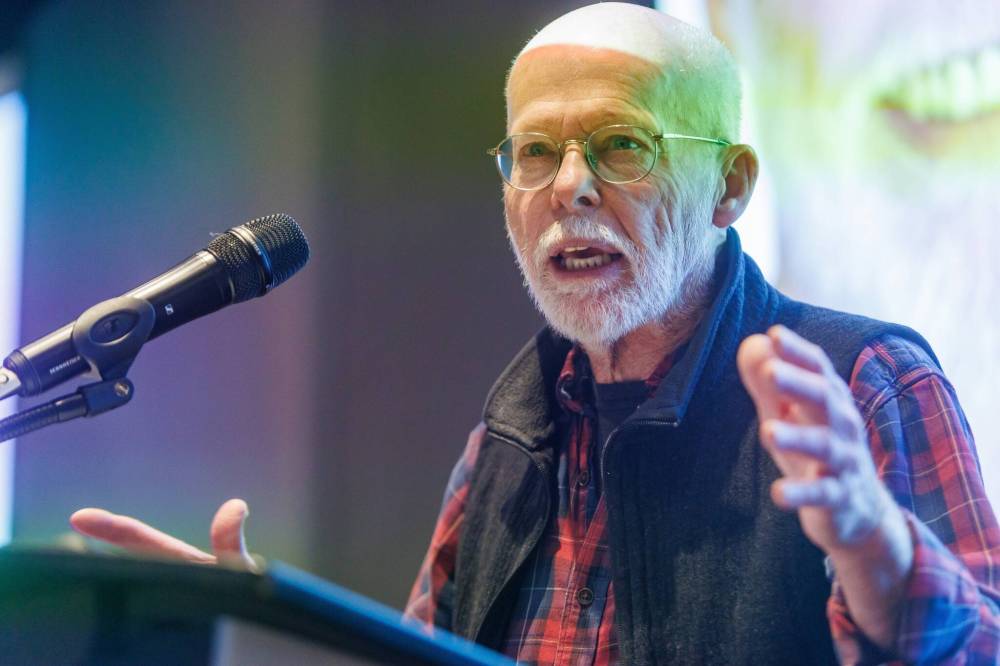Education
Report Highlights Economic Benefits of Alternative Schools for Adults

A recent report sheds light on the significant economic benefits of alternative schools that cater to mature students, adult newcomers, and individuals who did not complete high school. This analysis, conducted by Jim Silver, professor emeritus of urban and inner-city studies at the University of Winnipeg, highlights the untapped potential of these educational programs in fostering economic growth.
Silver, who has advocated for increased provincial funding for adult education as part of poverty-reduction initiatives, released the findings in collaboration with the Manitoba Research Alliance and the Canadian Centre for Policy Alternatives. This cost-benefit analysis surveyed adults who obtained their mature high school diplomas within the last five years, revealing promising outcomes for both individuals and the broader community.
A survey conducted by Probe Research from January 20 to April 28 included participants from various locations, including Winnipeg, The Pas, Altona, Killarney, and Boissevain. The results indicate that approximately five out of six graduates are either employed, pursuing further education, or doing both. This translates to an impressive 83 percent success rate.
The findings further revealed that more than 60 percent of the 63 individuals who were previously reliant on employment and income assistance reported they no longer need such support. This shift results in a significant reduction in social assistance costs and new tax contributions from working graduates, amounting to an estimated $700,000 annually.
During a launch event at the Canadian Museum for Human Rights, Silver emphasized the importance of re-envisioning education to include adult learning. He stated, “We ought to be radically re-imagining what education is,” urging the audience to recognize the value of adult education in economic development.
One participant, Norma Zacharias, expressed her excitement about completing her final year at Regional Connections Immigrant Services in Winkler, Manitoba. A new mother who moved from Tamaulipas, Mexico in 2022, Zacharias highlighted the benefits of obtaining her diploma while balancing work and childcare. “I think it will give me a better opportunity at my work… and see if I can do a little career,” she said, reflecting on her educational journey.
At a recent conference hosted by the Adult Secondary Education Council, Silver called on educators and students to help rebrand adult learning centers as essential contributors to the economy. The event was attended by around 100 people, including students and certified teachers, who responded enthusiastically to his message.
Silver suggested that English teachers assign their students to write letters about the value of their alternative education experiences. These letters could be sent to Reneé Cable, the Minister of Advanced Education, and Premier Wab Kinew, as a way to raise awareness of the impact of adult learning.
The report also noted that nine out of ten participants indicated their children benefited from their parents’ educational pursuits. It concluded that the government of Manitoba could break even on its investment in adult basic education within a decade. Silver’s survey boasts a margin of error of plus or minus 4.83 percentage points, ensuring a high level of reliability in its findings.
Zacharias, looking to the future, hopes to provide a “proper education” for her daughter, emphasizing the long-term value of a high school diploma. The report underscores that achieving a mature diploma not only delivers personal and family advantages but also contributes to fiscal benefits for the province.
This comprehensive analysis illustrates the vital role that alternative schools play in enhancing both individual and community outcomes, reinforcing the necessity for continued support and investment in adult education programs across Manitoba and beyond.
-

 Education3 months ago
Education3 months agoBrandon University’s Failed $5 Million Project Sparks Oversight Review
-

 Science4 months ago
Science4 months agoMicrosoft Confirms U.S. Law Overrules Canadian Data Sovereignty
-

 Lifestyle3 months ago
Lifestyle3 months agoWinnipeg Celebrates Culinary Creativity During Le Burger Week 2025
-

 Health4 months ago
Health4 months agoMontreal’s Groupe Marcelle Leads Canadian Cosmetic Industry Growth
-

 Science4 months ago
Science4 months agoTech Innovator Amandipp Singh Transforms Hiring for Disabled
-

 Technology4 months ago
Technology4 months agoDragon Ball: Sparking! Zero Launching on Switch and Switch 2 This November
-

 Education4 months ago
Education4 months agoRed River College Launches New Programs to Address Industry Needs
-

 Technology4 months ago
Technology4 months agoGoogle Pixel 10 Pro Fold Specs Unveiled Ahead of Launch
-

 Business3 months ago
Business3 months agoRocket Lab Reports Strong Q2 2025 Revenue Growth and Future Plans
-

 Technology2 months ago
Technology2 months agoDiscord Faces Serious Security Breach Affecting Millions
-

 Education4 months ago
Education4 months agoAlberta Teachers’ Strike: Potential Impacts on Students and Families
-

 Science4 months ago
Science4 months agoChina’s Wukong Spacesuit Sets New Standard for AI in Space
-

 Education3 months ago
Education3 months agoNew SĆIȺNEW̱ SṮEȽIṮḴEȽ Elementary Opens in Langford for 2025/2026 Year
-

 Technology4 months ago
Technology4 months agoWorld of Warcraft Players Buzz Over 19-Quest Bee Challenge
-

 Business4 months ago
Business4 months agoNew Estimates Reveal ChatGPT-5 Energy Use Could Soar
-

 Business4 months ago
Business4 months agoDawson City Residents Rally Around Buy Canadian Movement
-

 Business4 months ago
Business4 months agoBNA Brewing to Open New Bowling Alley in Downtown Penticton
-

 Technology2 months ago
Technology2 months agoHuawei MatePad 12X Redefines Tablet Experience for Professionals
-

 Technology4 months ago
Technology4 months agoFuture Entertainment Launches DDoD with Gameplay Trailer Showcase
-

 Technology4 months ago
Technology4 months agoGlobal Launch of Ragnarok M: Classic Set for September 3, 2025
-

 Technology4 months ago
Technology4 months agoInnovative 140W GaN Travel Adapter Combines Power and Convenience
-

 Top Stories3 months ago
Top Stories3 months agoBlue Jays Shift José Berríos to Bullpen Ahead of Playoffs
-

 Science4 months ago
Science4 months agoXi Labs Innovates with New AI Operating System Set for 2025 Launch
-

 Technology4 months ago
Technology4 months agoNew IDR01 Smart Ring Offers Advanced Sports Tracking for $169










